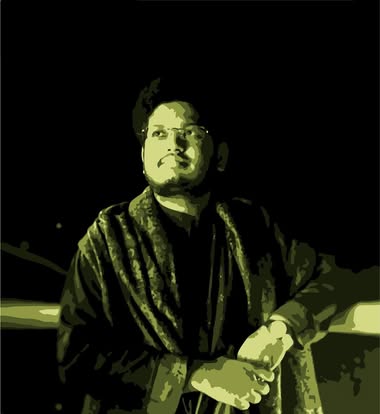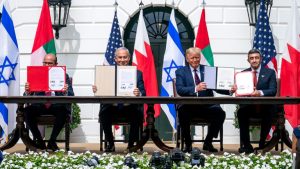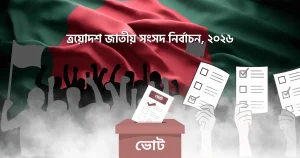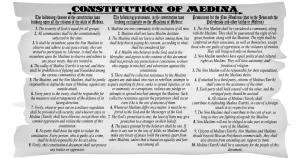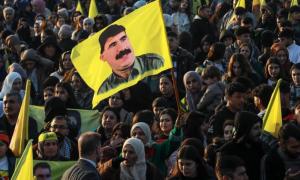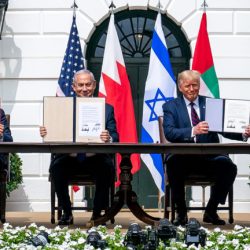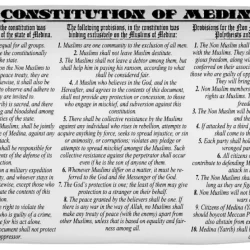Picture this: you’re sitting in a classroom, staring out of the window, lost in thought. The teacher is droning on about something you couldn’t care less about. Suddenly, you raise your hand and ask a question that challenges the very foundation of the lesson. The teacher looks at you like you just grew two heads, and responds with a dismissive wave of the hand, telling you to stay focused on the task at hand. Congratulations, you’ve just experienced society’s resistance to wisdom and intelligence.
It’s funny, isn’t it? We’re constantly told that knowledge is power and that we should strive to be the best we can be. But the truth is, society doesn’t actually want us to be too smart or too wise. Why? Because if we are, we become a threat to the status quo.
This paradox has been around for centuries, and it’s not just limited to schools. From the media we consume to the politicians we elect; society actively resists independent thought and critical analysis. It’s as if we’re all supposed to be content with being mediocre, accepting the world as it is, and never questioning why things are the way they are.
But let’s face it, who wants to live like that? Who wants to be a mindless drone, following the herd and never exploring the full potential of our minds? In this article, we’ll explore the reasons behind society’s fear of intelligence and wisdom, and how we can overcome this resistance to become our best selves. So, grab a cup of coffee and buckle up, because we’re about to embark on a journey of self-discovery and rebellion against the status quo.
Defining Intelligence and Wisdom
Wisdom and intellect are frequently underrated traits that are not acknowledged or valued as they need to be in today’s society. The paradoxical predicament arises from cultures’ interest in preventing people from becoming wise or intelligent. This is so that people who are wise and intelligent cannot be readily exploited, ruled over, or made to live like machines.
Let’s define intellect and wisdom before we explore society’s resistance to these qualities. The capacity to reason critically, work through challenges, and pick things up rapidly is referred to as intelligence. The capacity to apply intelligence to form moral judgments, make moral choices, and gain a wider perspective on the world is known as wisdom.
Intelligence is not just information, but also the ability to see the interconnectedness of everything. So, intelligence is not just cognitive, but it is existential as well.
-Osho
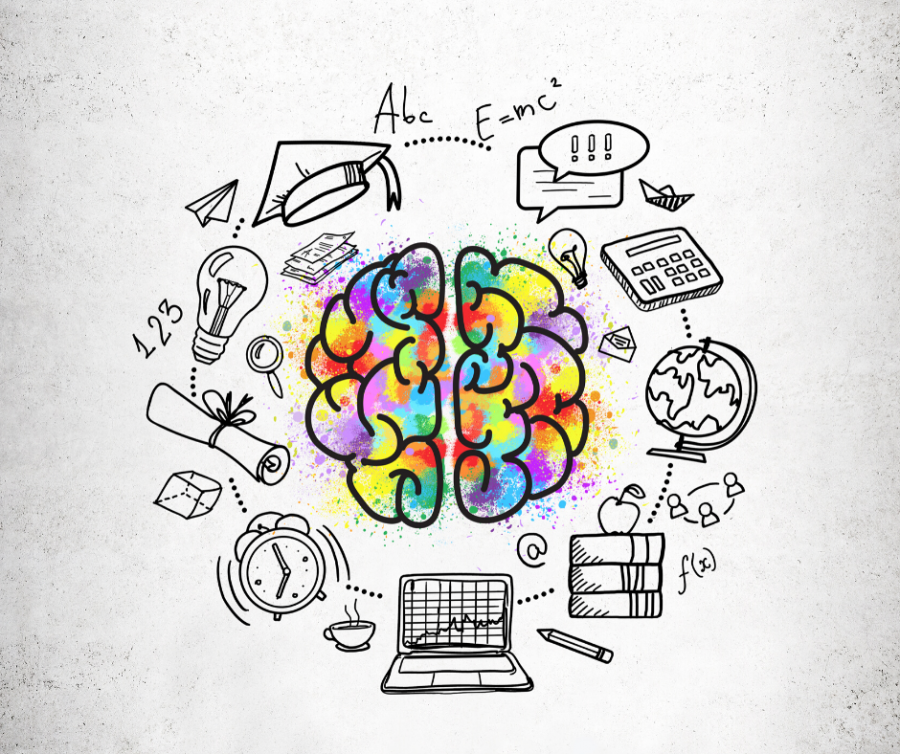
Although they should be defined independently, intelligence and wisdom are terms that are sometimes used interchangeably. The ability to learn fast, solve problems, and acquire knowledge is referred to as intelligence. The cognitive talents of a person, such as thinking, spatial awareness, and linguistic skills, can be tested through standardized tests like IQ testing. Most people believe that intelligence is an inherent quality that is influenced by genetics and early childhood development.
On the other hand, wisdom is a byproduct of life events and personal development rather than a natural quality. The capacity to apply knowledge and intelligence to form wise judgments and assessments is known as wisdom. Cognitive and emotional intelligence work together to enable people to grasp the larger picture, balance benefits and drawbacks, and make moral decisions. Although age and life experience are frequently linked to wisdom, it is not a given that everyone who ages will become wise.
In concluding definitions, wisdom is the capacity to apply one’s intellect to make wise decisions. Intelligence is a measure of one’s cognitive capacities. While wisdom is what enables people to negotiate difficult situations and make moral decisions that are advantageous to society as a whole, intelligence may be a useful skill in many disciplines. Therefore, it is crucial to develop both intelligence and wisdom since they can work in harmony to improve the world.
Do you know What is Freedom of Speech? How far it can be exercised? Read it, if not!
Society’s Fear of Independent Thinking
Why does society fear independent thinking? What is so dangerous about it? These are questions that have puzzled philosophers, scholars, and common people for centuries. One would think that in a world where innovation and progress are highly valued, independent thinking would be celebrated. But unfortunately, this is not always the case.
No society wants people to use their own intelligence because the moment they start using their intelligence, they become dangerous to the establishment, the people in power, and all kinds of oppression and exploitation. In fact, a wise person is like a fire alive, a flame, who would rather die than be enslaved.
In fact, societies have a long history of fearing those who dare to think outside of the box. The fear of independent thinking can be seen in many different cultures and religions around the world for centuries, and it’s not difficult to understand why. In some cases, it is even institutionalized. In most cases, the establishment’s power is based on conformity and obedience, and independent thinkers pose a threat to that power.
One example of society’s fear of independent thinking can be seen in the story of Galileo Galilei. In the early 17th century, Galileo made significant astronomical discoveries that challenged the commonly held beliefs of the time, particularly the geocentric theory that the Earth was the center of the universe. Galileo’s findings were controversial and met with resistance from the Church, which held great power and influence over society. The Church viewed Galileo’s findings as a threat to their authority and control over people’s beliefs, and they put him on trial for heresy. Despite being forced to recant his views, Galileo’s work laid the foundation for the scientific revolution that would follow.
Another example can be seen in the story of Martin Luther King Jr. King was a powerful independent thinker who advocated for civil rights and challenged the established order of segregation and discrimination in America. His speeches and protests inspired people to question the status quo and demand change. This threatened those in power, and King faced opposition and even violence from the government and those who opposed his message. However, his work ultimately led to significant progress in the fight for civil rights.
Similarly, in the United States during the 1950s and 60s, the government actively persecuted those suspected of being communist sympathizers. Many intellectuals and artists were targeted simply because they held progressive beliefs or dared to speak out against the government’s actions.
Here in the United States, the land of the free, the home of the brave. But is it really? In recent years, there has been a growing fear of independent thinking in the US. People are often criticized or even ostracized for expressing opinions that are deemed unpopular or controversial. There is a growing movement of anti-intellectualism, which denigrates education and expertise in favor of populist sentiment. Social media platforms have become battlegrounds for ideological conflicts, and cancel culture is rampant. People are afraid to speak their minds, for fear of being attacked or ridiculed. The fear of independent thought and dissent was so strong that even innocent people were punished.
Read Dictatorship and Human Rights: The Ongoing Struggle for Freedom
But it’s not just the US. In Bangladesh, a predominantly Muslim country, there is also a fear of independent thinking. In 2015, a blogger named Niloy Neel was hacked to death by extremists for his writings that were critical of religion. This incident sparked protests and raised questions about freedom of speech and the safety of bloggers in Bangladesh.
In Bangladesh, the government’s fear of independent thinking has led to the suppression of free speech and the persecution of journalists and activists. People who dare to speak out against the government or express alternative views are often silenced through intimidation, harassment, or worse.
It is ironic that in a world that values progress and innovation, society is often resistant to independent thinking. Independent thinking requires the ability to question authority, challenge established beliefs, and come up with creative solutions. Yet, societies often fear these very traits, preferring instead to maintain the status quo. So why does society fear independent thinking? Perhaps it is because independent thinkers are often seen as a threat to the status quo.
Those in power often rely on the obedience and conformity of others to maintain their authority. They challenge the norms and the established order, and that can be uncomfortable for those in power. Independent thinking threatens this power dynamic by encouraging people to question and challenge authority. This can be seen in the case of authoritarian regimes, where independent thinkers are often seen as a threat to the state.
“Intelligence and wisdom are not things that can be acquired through reading books or listening to teachers. They can only be gained through personal experience and self-reflection.”
-Osho
Another reason for society’s fear of independent thinking is that it requires risk-taking and can lead to failure. Many people are more comfortable with the safety of the known, rather than the uncertainty of the unknown. Independent thinking requires taking risks, making mistakes, and learning from them. However, societies often stigmatize failure, making it difficult for people to take risks and try new things.
Read What is Public Opinion and hindrances to its sound nature
Moreover, society often seeks to control the thoughts and actions of its members. From religious institutions to political ideologies, there are many ways in which society seeks to impose its beliefs on others. Independent thinking threatens this control, as it encourages people to question and challenge these beliefs.
It’s important to note that the fear of independent thinking is not limited to governments or institutions. In fact, it can be found in all aspects of society. For instance, some parents discourage their children from pursuing creative or non-traditional careers because they fear the potential risks or uncertainties involved.
Ultimately, society’s fear of independent thinking is a paradox. On the one hand, we celebrate the achievements of great thinkers and innovators, yet on the other hand, we fear those who might challenge our beliefs or the status quo. The truth is that society needs independent thinkers to progress and evolve, but the fear of change and the unknown often hold us back.
The fear of independent thinking is a paradoxical phenomenon, a real issue that has a long history. Society needs it to progress and evolve, yet it often suppresses it out of fear of change and challenging established norms. It is important for us to recognize this fear and challenge it in ourselves and in our communities, in order to create a world that values and celebrates independent thinking. It is essential to cultivate a culture that values critical thinking and the ability to challenge the status quo. By doing so, we can create a society that encourages innovation, growth, and the pursuit of truth.
The Consequences of Suppressing Wisdom and Intelligence
The negative impact of suppressing wisdom and intelligence can be felt at both the individual and societal levels. When individuals are not encouraged to think critically and independently, they may become apathetic and lack creativity, innovation, and imagination. This can lead to stagnation, oppression, and the loss of diversity.
When people are encouraged to use their intelligence and wisdom, they become free and assert their individuality. However, societies fear independent thinking and intelligence as it threatens the establishment and those in power. This fear often leads to the suppression of critical thinking and independent thought, resulting in conformity and a lack of progress.
The consequences of suppressing wisdom and intelligence can be seen throughout history. The Soviet Union discouraged independent thought and critical thinking, leading to economic stagnation and ultimately, the collapse of the Soviet Union. Similarly, apartheid in South Africa was built on the suppression of critical thinking and independent thought, leading to a lack of progress and inequality.
In contrast, societies that encourage critical thinking and independent thought often experience positive change and growth. For example, during the Civil Rights Movement in the United States, individuals challenged the status quo and demanded change, leading to progress toward greater equality and civil rights.
It is important to value individuality and diversity and encourage critical thinking and independent thought. By doing so, societies can create a culture of innovation and progress that benefits everyone.
Why do we need Wisdom and Intelligence in Society?
The ability to think critically, make informed decisions, and act in a way that benefits the community at large is crucial for the growth and sustainability of any society.
Individuals who think independently can inspire positive change and challenge outdated norms and beliefs. They can also promote critical thinking, innovation, and progress. Furthermore, societies that value wisdom and intelligence tend to be more open-minded and progressive.
Wisdom and intelligence bring many benefits to society. When people possess the necessary knowledge and skills, they are better equipped to evaluate options and weigh the potential outcomes of their choices. If they are encouraged to use their critical thinking skills and independent thought, they can contribute to positive change and progress in society.
When people are educated about social and political issues, they can better understand the causes and potential solutions to problems such as poverty, discrimination, and inequality. This, in turn, can lead to more effective policies and programs that aim to address these issues and improve the lives of all members of society.
“Wisdom comes only when you are willing to be different. If you follow the crowd, you will never be able to develop wisdom because the crowd is always foolish.”
Osho
When people are encouraged to think creatively and outside the box, they can come up with new and improved ways of doing things. This can lead to the development of new technologies, the creation of new industries, and the advancement of existing ones. Without intelligent and wise individuals, progress can be stunted and society may stagnate. People who are wise and intelligent often have a broader perspective on life and are better able to understand the needs and perspectives of others. This can lead to greater compassion and a more inclusive society.
When people are knowledgeable about their own culture and that of others, they are more likely to appreciate diversity and respect other cultures. This can lead to greater social cohesion and understanding, as well as a greater sense of community and shared values.
Wisdom and intelligence also lead to personal growth and development. When individuals are encouraged to think critically and independently, they can develop a better understanding of themselves and their place in the world. This can lead to greater self-awareness and self-actualization.
Moreover, individuals with wisdom and intelligence often become leaders in society. They are better equipped to make informed decisions and lead others toward positive change. They can inspire and motivate others to strive for excellence and work towards a better future.
You may love to read What is Freedom of Speech and how far it can go
Overcoming Society’s Resistance to Wisdom and Intelligence
To overcome society’s resistance to wisdom and intelligence, individuals can work on cultivating these qualities in themselves. This can be achieved through education, open-mindedness, and intellectual diversity. It is also essential to encourage critical thinking and independent thought in others to create a society that values wisdom and intelligence.
Overcoming society’s resistance to wisdom and intelligence can be a challenging but necessary process. It requires a shift in societal values towards valuing critical thinking, independent thought, and individuality.
One way to overcome this resistance is through education. Educational systems can play a critical role in promoting critical thinking and independent thought. By teaching students to question the status quo and encouraging them to think for themselves, educational institutions can create a culture of innovation and progress.
Another way to overcome resistance to wisdom and intelligence is through the media. The media has a powerful influence on society and can be used to promote critical thinking and independent thought. By showcasing diverse perspectives and ideas, the media can challenge the status quo and inspire individuals to think for themselves.
Furthermore, individuals can take steps to overcome societal resistance to wisdom and intelligence by valuing their own intelligence and independent thinking. By being confident in their own abilities and questioning the status quo, individuals can inspire others to do the same.
Educational institutions, the media, and individuals all have a role to play in promoting critical thinking and independent thought. By valuing individuality and diversity and encouraging innovation and progress, societies can create a culture that values wisdom and intelligence. This can lead to positive change and progress that benefits everyone.
Let us open that door for freedom of thought and conscience
The paradox of society’s disdain for intelligence and wisdom remains a relevant topic to this day. While governments and institutions tout the importance of education and knowledge, they often fear the independent thinking and questioning that comes with true intelligence and wisdom. This fear is not without reason, as history has shown that those who question the status quo and challenge authority are often met with resistance and even persecution.
But in spite of society’s resistance, we must recognize that wisdom and intelligence are essential for a thriving society. Without them, we are left with conformity, stagnation, and ultimately, decline. We must encourage and cultivate these qualities in ourselves and in others, even if it means going against the grain.
As Osho once said, “Intelligence is the door to freedom and alertness is the door to intelligence.” Let us open that door and embrace the freedom and progress that comes with true wisdom and intelligence, even if it means being a little dangerous to the establishment. After all, as another great thinker, Albert Einstein, once said, “The important thing is not to stop questioning. Curiosity has its own reason for existing.”
